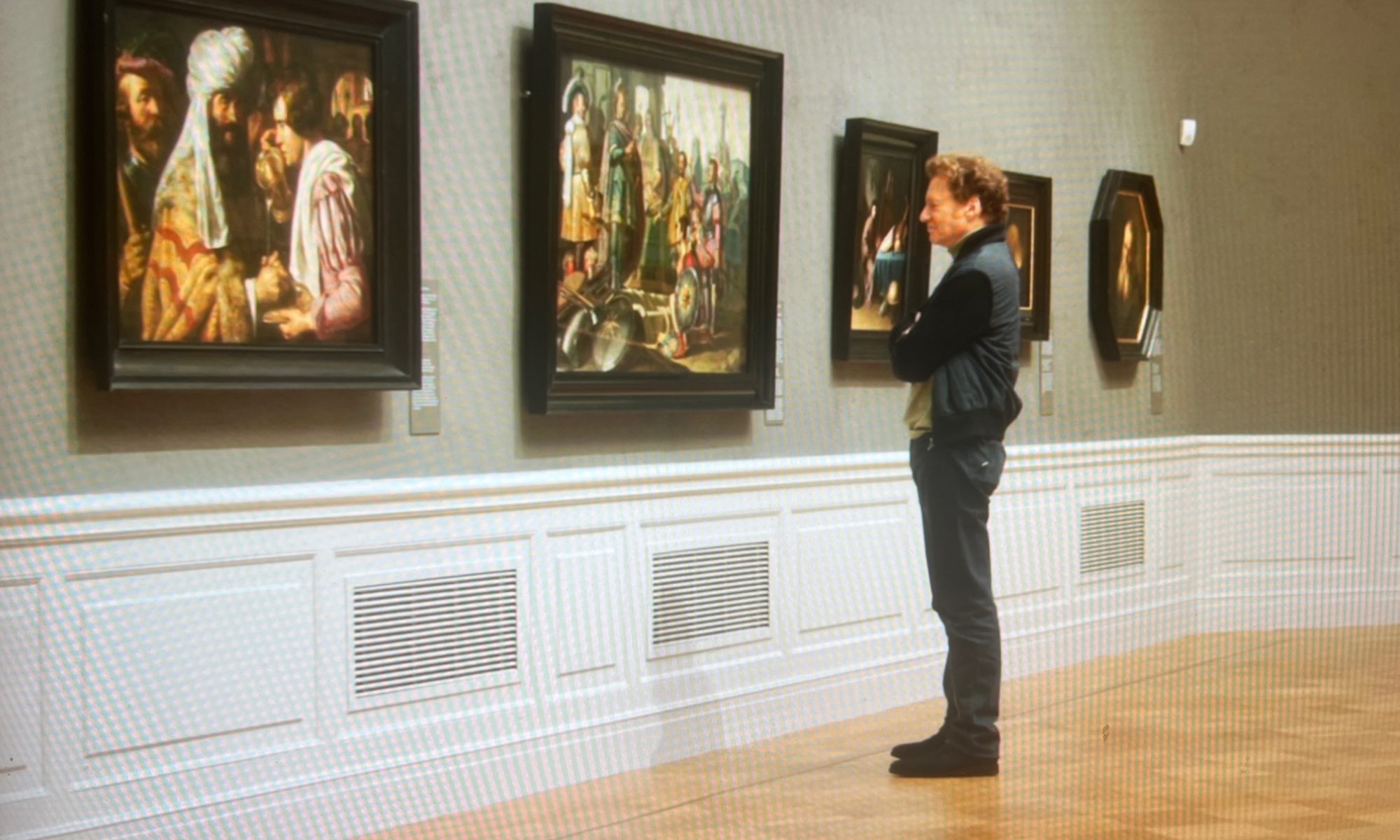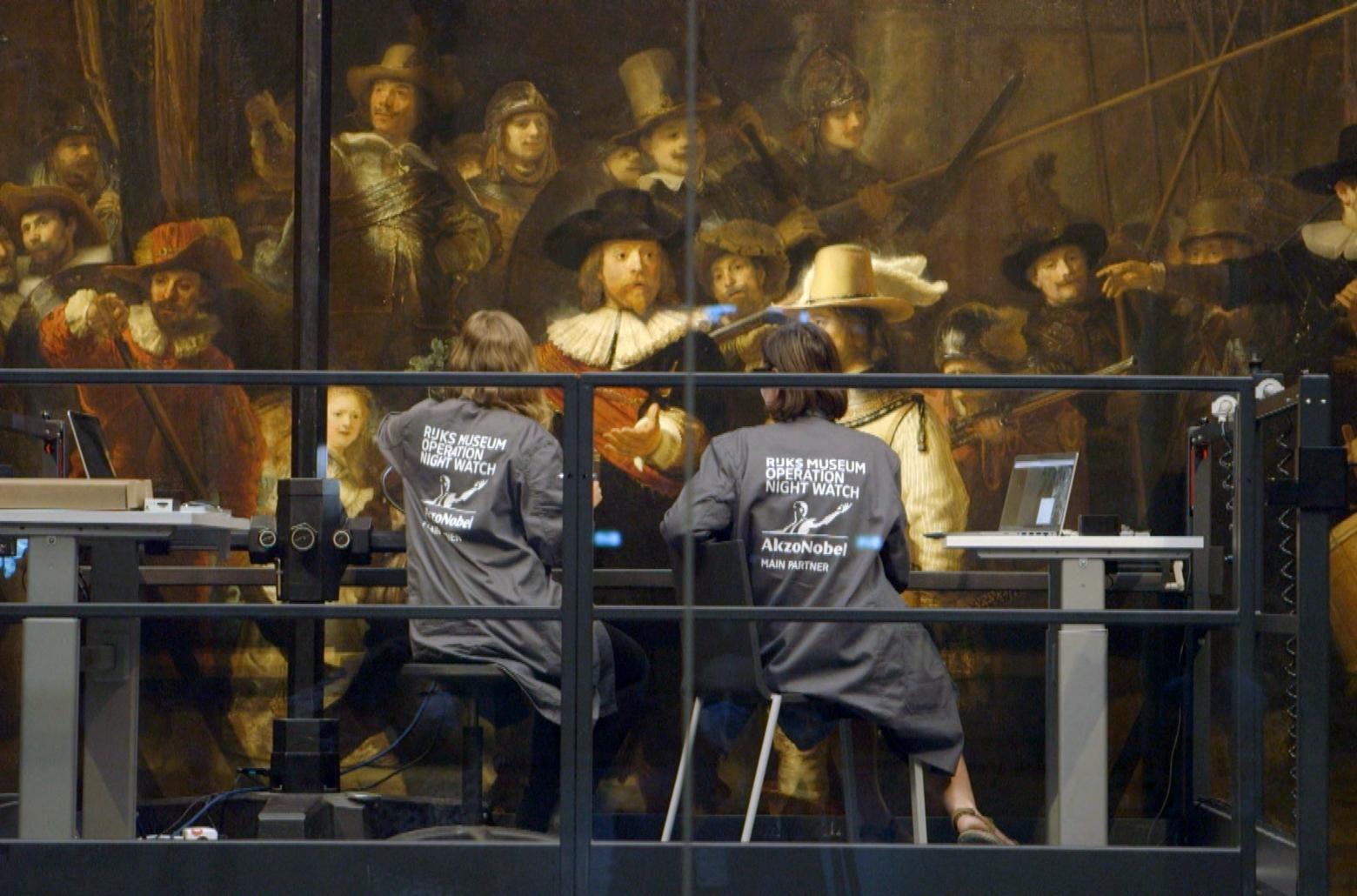Rembrandt has strongly influenced art over centuries. Not only through his masterpieces but also through his work as a teacher. The knowledge he taught his students was adopted by them. They incorporated it into their own art and passed it on to those who came after them. In this way, the universal messages inscribed in his paintings have also been passed on. Art that directly or indirectly bears Rembrandt‘s influence can therefore be found in every epoch of art history – until today. But why was Rembrandt such a great teacher for human kind? What makes the old master still so relevant in the 21st century? And what can we still learn from him today? Together with the world‘s largest collector of Rembrandt and his pupils, Thomas Kaplan, contemporary artists and art experts, the film goes on the trail of Rembrandt – from Leiden to Amsterdam, to London, Paris and New York – and tells the story of the great master and those who followed him. Script & Direction: Frauke Schlieckau. A Bottega Berlin Production. In cooperation with The Leiden Collection.
ON SCREEN: CASPAR DAVID FRIEDRICH. WANDERER BETWEEN THE WORLDS. ON VIEW AT THE MUSEUM GEORG SCHÄFER
Caspar David Friedrich is considered one of the greatest landscape painters ever. Almost forgotten after his death, his fog-shrouded landscapes and lonely mountains were able to unfold an unimagined effect in the 20th century. The one-hour Arte documentary “Caspar David Friedrich. Wanderer between the Worlds” by Nicola Graef and Frauke Schlieckau tells of the painter’s life in Greifswald and Dresden and searches for traces in the Elbe Sandstone Mountains and on the Baltic Sea. Now the film can be seen in the exhibition “Caspar David Friedrich and the Harbingers of Romanticism” at the Museum Georg Schäfer.
ON SCREEN: MUSIC OF THE FUTURE – HOW CLASSICAL MUSIC IS REINVENTING ITSELF. 21.08.2022, 7.10 p.m, 3Sat
Opera and classical concerts are out. Audience numbers have been declining for years. Young audiences simply don’t want to hear anything more about classical music. It almost seems as if the industry has lost touch. What must the industry do to successfully save classical music through the 21st century? And if so, how? Written and directed by Frauke Schlieckau. A Bottega Berlin production for Neue Zürcher Zeitung / SRF / 3Sat. 30 min
ON SCREEN: MUSIC OF THE FUTURE – HOW CLASSICAL MUSIC IS REINVENTING ITSELF. 19.06.2022, 23.00, SRF
Opera and classical concerts are out. Audience numbers have been declining for years. Young audiences simply don’t want to hear anything more about classical music. It almost seems as if the industry has lost touch. What must the industry do to successfully save classical music through the 21st century? And if so, how? Written and directed by Frauke Schlieckau. A Bottega Berlin production for Neue Zürcher Zeitung / SRF / 3Sat. 30 min
PRESS: MONOPOL STREAMING TIPS. ART FILMS WORTH WATCHING IN FEBRUARY.
The art magazine Monopol has this to say about “Rembrandts Century: Art, Market and Business”: “For her documentary, the film’s maker Frauke Schlieckau looked over the shoulder of Rembrandt collector Thomas Kaplan, among others, as he opened a box containing the smallest of Rembrandt’s paintings. She zoomed in on paintings that are usually hidden from public view. She also spoke with Baukje Coenen of Sotheby’s about the (metaphorical and literal) complexity of the paintings – and about how restorers bring their secrets to light. The result is a tribute to the Dutch golden boy, sustained by the interviewees’ love of his paintings. It’s a film that paints a picture of the era that produced Rembrandt, contrasts him with other painters of his own time like Jan Vermeer, and illuminates what is still admired about him today.”
In Production: DEATH OF THE GENIUS? AI AND THE FUTURE OF ART, 3Sat, 37 minutes
Art that deals with new technologies, that works with Artificial Intelligence and robotics, is in trend. But what some people consider revolutionary, others consider gimmickry, kitschy and dangerous. And the increasing use of new technologies in culture threatens to abolish the artist. But how much robotics can art take? After all, art is an expression of human experience and an attempt to negotiate the human condition. So can a machine really fit into the complex process of creating a work of art as an independent actor?
Written / directed by Frauke Schlieckau. A production by Lona Media






